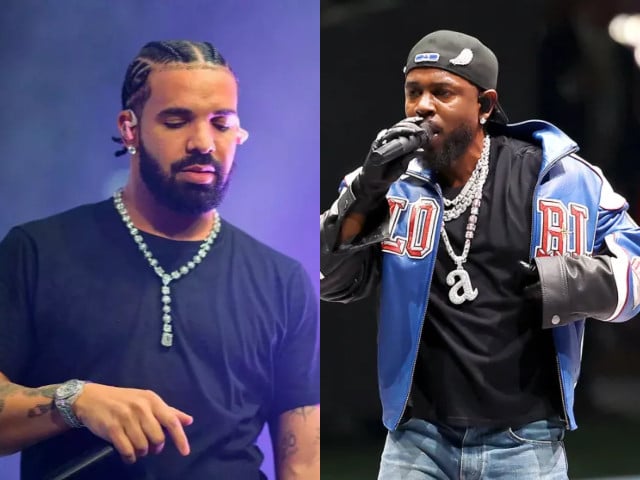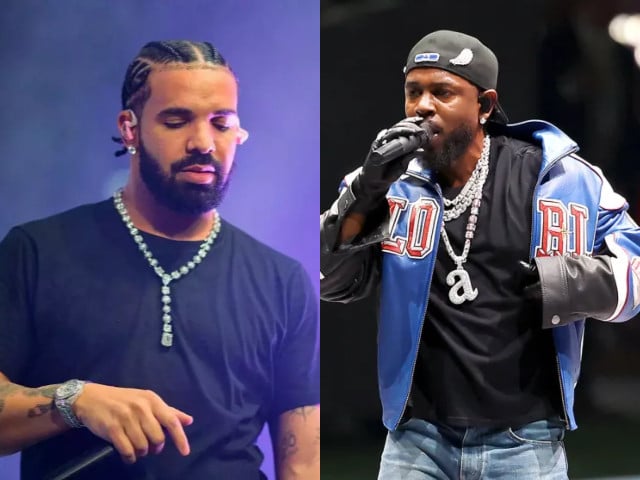TORONTO TUESDAY BOMBSHELL: Drake Settles High-Profile Dispute Over Infamous Kendrick Lamar Diss Track
The world of hip-hop just got a whole lot quieter after a months-long media frenzy surrounding a high-stakes dispute between two music industry giants. Toronto rapper Drake, known for his chart-topping hits and savvy business acumen, has reportedly settled a contentious lawsuit with iHeartMedia, the parent company of Clear Channel Communications and several prominent radio stations. The dust-up centered around a scathing diss track aimed at none other than Compton’s own Kendrick Lamar, one of the most influential voices in contemporary hip-hop.

Background of the Dispute
Initial Accusations
In November, Drake initiated a legal petition in Bexar County, Texas, alleging that iHeartMedia had engaged in illegal practices by accepting undisclosed payments from Universal Music Group (UMG). The crux of Drake’s accusation was that iHeartMedia had artificially inflated the radio airplay of Kendrick Lamar’s diss track, “Not Like Us,” in exchange for these illicit payments.
UMG’s Role
The involvement of UMG, the record label representing both Drake and Lamar, further complicated the situation. Drake’s petition asserted that UMG had orchestrated these “irregular and inappropriate business practices” to promote “Not Like Us” at Drake’s expense.
Follow-Up Lawsuits
Drake’s legal actions against UMG didn’t end there. In January, he filed a separate defamation lawsuit against the label in New York. This lawsuit stemmed from his allegations that UMG, through “Not Like Us,” had falsely portrayed him as a sex offender, a claim he vehemently denies.
A hearing regarding UMG’s motion to dismiss the defamation case is scheduled for Wednesday in San Antonio, highlighting the ongoing legal battle between Drake and his former label.
Settlement and Its Implications
Amicable Resolution
In a surprising turn of events, court documents revealed that Drake and iHeartMedia had reached an amicable settlement to resolve their dispute. The details of this settlement remain confidential, shrouding the terms and conditions in secrecy.
Drake’s legal team issued a brief statement expressing satisfaction with the outcome, stating, “We are pleased that the parties were able to reach a settlement satisfactory to both sides, and have no further comment on this matter.” iHeartMedia declined to comment on the settlement.
Impact on the Feud
While the settlement between Drake and iHeartMedia may put an end to their direct legal conflict, it’s unclear whether it will quell the broader feud between Drake and Lamar. The underlying issues that fueled the creation of “Not Like Us” remain unresolved, leaving the possibility of future clashes.
Industry Impact
The settlement could set a precedent for artists seeking to challenge alleged pay-for-play practices within the music industry. It may embolden artists to scrutinize radio airplay and hold radio stations and record labels accountable for potentially unethical promotional tactics.
Analysis of the Diss Track and Its Controversy
Lyrical Content
At the heart of the controversy surrounding “Not Like Us” lie its lyrics, which Drake alleges contain defamatory statements portraying him as a sex offender. These accusations, he argues, are false and highly damaging to his reputation.
Artwork and Music Video
Drake further contends that the artwork and music video accompanying “Not Like Us” reinforce these harmful misrepresentations, contributing to the negative portrayal of him in the public eye.
Context of the Feud
The feud between Drake and Lamar has been a simmering rivalry within the hip-hop community for several years. “Not Like Us,” with its explicit diss tracks and accompanying visuals, escalated this tension, becoming a focal point of their ongoing conflict.
Practical Aspects of the Settlement and Its Effects
Consequences for iHeartMedia
While the specific financial terms of the settlement remain undisclosed, it’s likely that iHeartMedia will face financial consequences for its alleged involvement in the pay-for-play scheme. The settlement could result in monetary damages, fines, or other penalties.
Consequences for UMG
The settlement may also have repercussions for UMG, particularly in terms of its business practices and public image. The allegations of “irregular and inappropriate business practices” could damage UMG’s reputation within the industry and raise concerns among artists about the label’s ethical conduct.
Future Implications
This case has the potential to reshape the dynamics between artists, radio stations, and record labels. It could lead to increased scrutiny of radio airplay practices, prompting artists to be more vigilant about potential pay-for-play schemes and demanding greater transparency from the industry.
Conclusion
Conclusion: A New Era in Hip-Hop Disputes and the Power of Artistic Expression
As we conclude our article on Drake settling his legal dispute with iHeartMedia over the Kendrick Lamar diss track, it’s clear that the hip-hop world has witnessed a significant development. At the heart of this dispute were allegations of copyright infringement and trademark misuse, which ultimately led to a resolution that may have far-reaching implications for the music industry. The key points that emerged from this controversy include Drake’s alleged use of Lamar’s lyrics without permission, the role of iHeartMedia in facilitating the dispute, and the potential consequences of artistic expression in the digital age.
The significance of this dispute cannot be overstated, as it raises fundamental questions about the nature of creativity, ownership, and intellectual property in the music industry. The implications of this case extend beyond the hip-hop world, as it has the potential to set a precedent for future disputes over artistic expression. Furthermore, the settlement may inspire a new era of collaboration and respect among artists, as they navigate the complex landscape of copyright law and artistic freedom. As we look to the future, it’s clear that the intersection of art and law will continue to shape the music industry in profound ways.
In the end, the Drake-iHeartMedia dispute serves as a reminder of the transformative power of art to challenge, provoke, and inspire. As we move forward, we must continue to prioritize artistic expression, while also acknowledging the complex web of laws and regulations that govern the music industry. Ultimately, the true value of art lies not in its ownership or commercialization, but in its ability to captivate, inspire, and connect us with something greater than ourselves. As the great poet Maya Angelou once said, “Art is the only way to run away without leaving home.” In the world of hip-hop, this mantra has never been more relevant, and we can only imagine the incredible heights that this genre will reach in the years to come.
